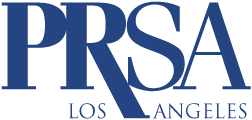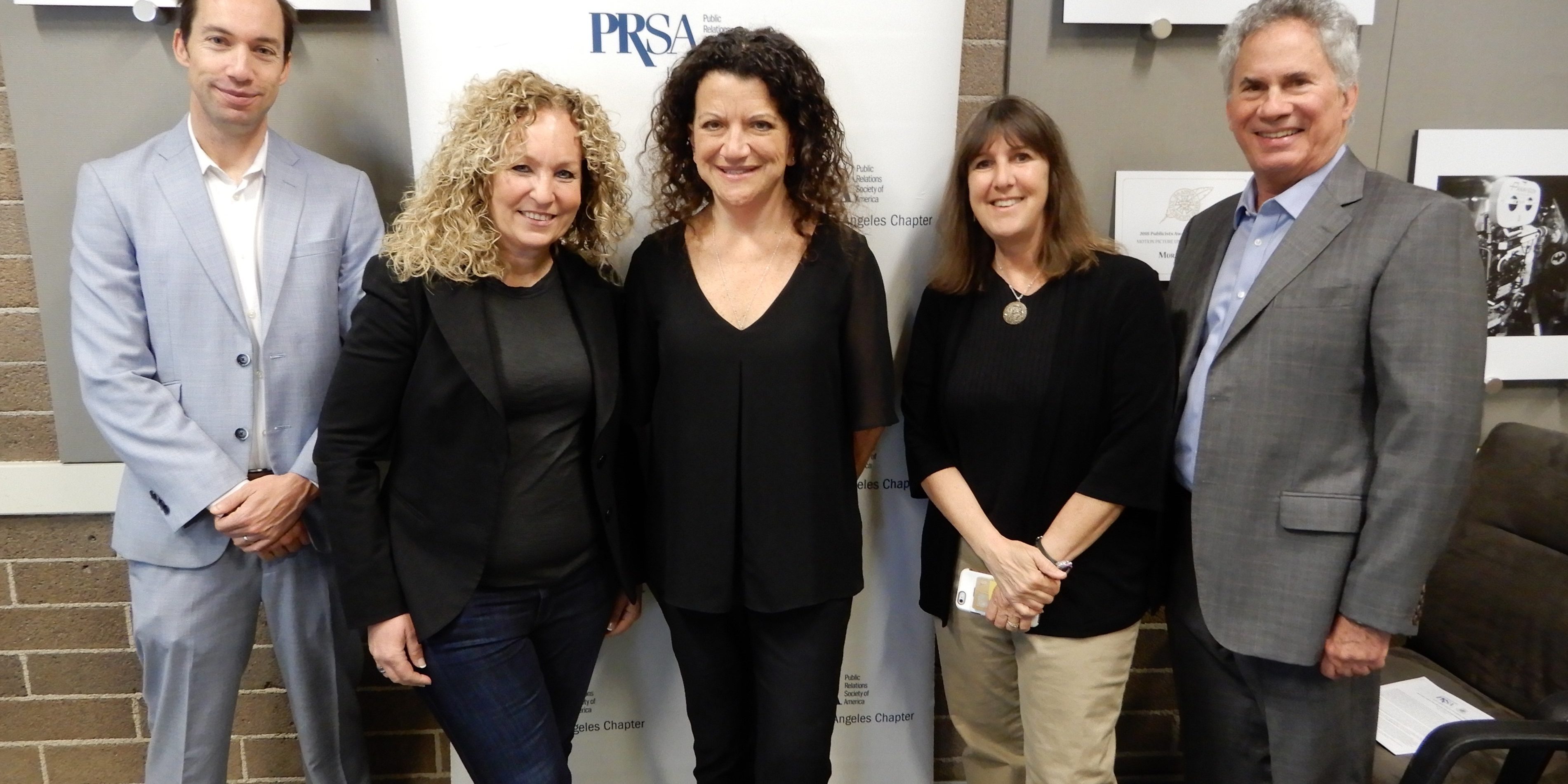By Samantha Szkolnik
On May 17thPRSA-LA EPPS (Entertainment Publicists Professionals Section) held an event to examine PR ethics and practices in the entertainment community.
The discussion focused on the value and significance of ethics in the entertainment industry and entertainment news reporting in an age when ethical practice can seem so challenged.
The panel was moderated by Rick Markovitz, president of Weissman/Markovitz Communications, an entertainment public relations firm. The panelists included Jennifer Allen, CEO of Viewpoint Public Relations, Debra Birnbaum, executive editor of Variety, Tim Molloy, executive editor of The Wrap, and Karen North, Ph.D, director of USC Annenberg’s Digital Social Media Program. While the panelists had very different careers and backgrounds, they all shared great insight about what it means to be ethical in the entertainment industry.
The panel began with a question to the panel regarding a time in their careers when they chose to be ethical about a situation. This lead to the topic of #MeTooand Time’s Up, which are leading topics now for many news outlets. These movements have grown to become powerful in giving victims of sexual assault and abuse a newfound voice. However, it is important for journalists to carefully employ ethics when writing stories about the victims; they must get all sides of the story. The panelists agreed that it is important to show the abuse of power within the entertainment industry in their stories, rather than telling the story of a time someone went on a bad date.
Tim Molloy later noted that it is important for journalists to stay true to their journalistic ideals and ask themselves why they became a journalist in the first place. It is also important to consider the motivations behind some of these stories. Is someone coming forward with an allegation of abuse to become famous themselves, or do they truly want to bring justice into this world?
The next issue that came up involved social media becoming the main news sources for many people. It is problematic when someone posts false information that becomes viral. This leads the public to believe false information. Debra Birnbaum brought up how vital it is for publicists to alert the media that they are still gathering information about a certain topic if things are unclear. It is important for publicists and journalists to be ethical with sensitive information, such as deaths or accusations, and to get the full story before sending information to media outlets. This is essential because lawyers can become involved, and the issue can become an even bigger deal than anticipated.
The panel also raised the issue of non-disclosure agreements in journalism. There are many ethical concerns with these types of agreements, as they are created to silence people. If someone with this type of agreement wants to speak about the topic in question, it becomes a legal and ethical concern. It is important to respect the law and not get caught up in legal trouble for the sake of a story. Karen North noted there is a difference between what is moral, what is ethical, and what is legal. A good journalist will utilize a combination of morals, ethics, and law to give a story validity.
The final topic of the discussion was how corporations deal with crises. The example that was brought up was the most recent accusation of racism against Starbucks. Starbucks has a reputation for being an inclusive business for both patrons and employees. When the video footage of the recent customer incident was brought to the public eye, Starbucks immediately came out with an apology and announced all of its stores would be closed for one business day to conduct racial-bias training. The panelists agreed that while such action may appear to help solve the problem, there are ways to handle it more effectively. Instead of closing all its stores at the same time, the company could have rotated this training session into multiple days and times. The way it was handled seemed made the action seem like a spur of the moment decision. Therefore, it is important for corporations to work with their public relations professionals to create crisis plans ahead of time.
Overall, it is a big responsibility and a big challenge for entertainment industry PR pros and journalists to be ethical. Today’s world is becoming saturated with misinformation, whether it is on social media platforms or in tabloid magazines. PRSA wants its members to stand by the organization’s code of ethics and provide the public with accurate and effective information.








